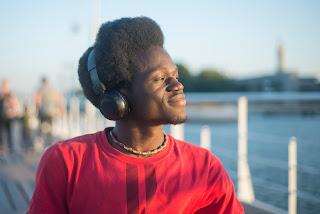New York Times Audio continues its expansion into podcasting with new episodes from two of its podcasts.
In the last year, The New York Times has expanded its roster of podcasts, but its new shows have seemed part of a consistent brand strategy. Listeners know what to expect in style -- thoughtful, culturally relevant, curious, and sometimes persnickety.
Contrast this style with the Spotify "throw everything up against the wall and see what sticks" strategy, and podcast fans can witness wildly divergent strategies to achieve a similar goal.
Still Processing - How a Highway Divided a Community in Philadelphia
In this week’s special episode of “Still Processing,” host Wesley Morris revisits a highway that he walked across as a kid.
Wesley Morris was struck by the Biden administration’s $1 trillion infrastructure bill, partly because it was an acknowledgment by the federal government that its midcentury infrastructure policies had caused communities to suffer — they had displaced more than a million people across the country, most of them Black; increased car dependence; and brought about decades of environmental harm.
Wesley Morris would occasionally cross the Vine Street Expressway as a kid, but he never considered how its construction impacted the Chinatown neighborhood that it carved through. What happened to all the people who were living there? How did their lives — and their communities — get altered? And why did it take so long for Wesley to ask himself these questions? Wesley returned to his hometown to try to find out.
Modern Love - Marriage Classes at Guantánamo
Mansoor Adayfi was only 19 when he arrived at the prison camp at the Guantánamo Bay Naval Base in Cuba. Growing up in a tiny village in the mountains of Yemen, “I didn’t know much about the world,” he wrote in his 2018 Modern Love essay. “Now my world was Guantánamo.”
After seven years in an isolation cell, Mansoor Adayfi was transferred to a communal block, where he and his fellow detainees started organizing informal classes for one another. One man taught a marriage class, where detainees learned about love — they shared their views on how men should treat women, they discussed what it would feel like to meet the person you love, and they even simulated an engagement and wedding celebration.
In the latest episode of “Modern Love”, nearly four years after the publication of his essay, Mansoor Adayfi shares an update with host Anna Martin and talks about what he would now teach others about the art of love. Since Guantánamo, he has experienced one of the best moments of his life — and one of the most painful.

Comments
Post a Comment
Thank You for your input and feedback. If you requested a response, we will do so as soon as possible.